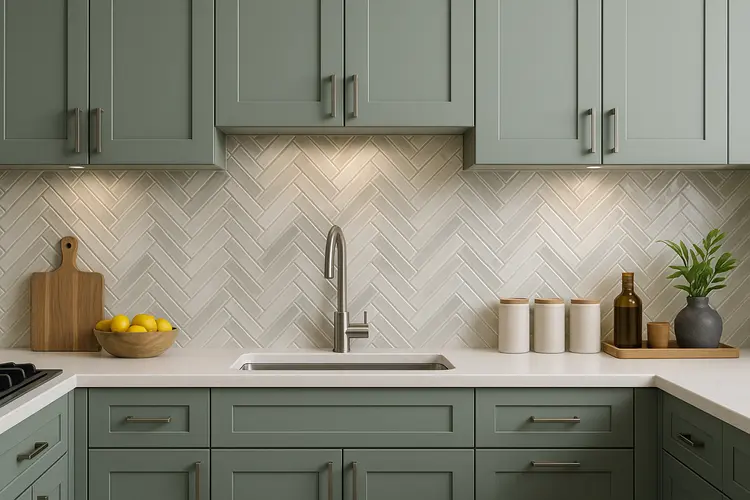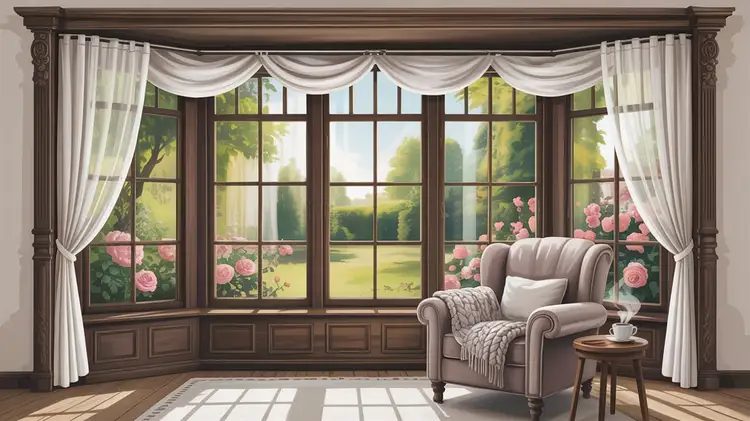Best Small Garden Design: Space-Saving Landscaping Ideas
Published: 20 May 2025
Understanding Small Garden Design
Making the most of available space while designing a small garden allows one to create a visually attractive, multi-functional outdoor area. The main objective consists of leveraging constrained dimensions to achieve both depth as well as added interest and functional utility.
A Design Guide for Small Gardens Contains These Primary Principles
These guidelines will help optimize the functionality of small gardens:
Vertical Gardening
Vertical Gardening requires gardeners to use wall planters, trellises and living walls to make the most of their vertical conditions. The gardening method extends planting surface without using precious ground territory.
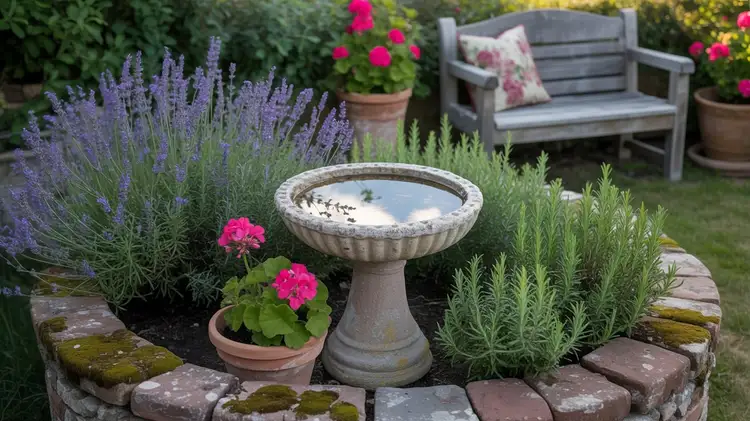
Dual-function Gardening Elements
Dual-function gardening elements should be considered which combine storage space with sitting areas and privacy elements with plant container capabilities.
Unified Color Theme
A unified color theme and consistent design elements will help develop spatial continuity, which results in a larger and blended appearance in the space.
Plants for Small Spaces
Plants should match the size of your garden when making selections for proper placement. Offshoot plants along with short-growing species make the best fit for tight planting areas.
Creative Hardscaping
You can create efficient hardscape elements by adding patios along with pathways or building decking installations, which will define boundaries while preserving space openness.
Design Idea | Description | Space-Saving Tip |
Vertical Garden Wall | Maximize wall space with mounted planters or green walls. | Use drip irrigation for low-maintenance care. |
Tiered Planters | Stacked planters or shelves to add layers and depth. | Great for herbs, flowers, or succulents. |
Paved Seating Nook | Create a cozy corner with pavers and a bench. | Choose foldable or built-in seating options. |
Hanging Basket Display | Add height and color with decorative hanging baskets. | Hang from pergolas, fences, or balcony rails. |
Creative Small Garden Ideas
Through the implementation of modern design principles, builders can transform a small area into an attractive garden retreat. Several landscape design ideas exist that maximize space utilization.
Vertical Gardens
Living Walls
Living Walls feature vertical panels with greenery installed on walls and fences that enhance the area with vegetation instead of using floor space. Three suitable plants to consider for vertical greenery include ivy, ferns and succulents.
Hanging Planters
The suspension of pots or baskets from pergolas, eaves and brackets provides different height arrangements of greenery through hanging planters.
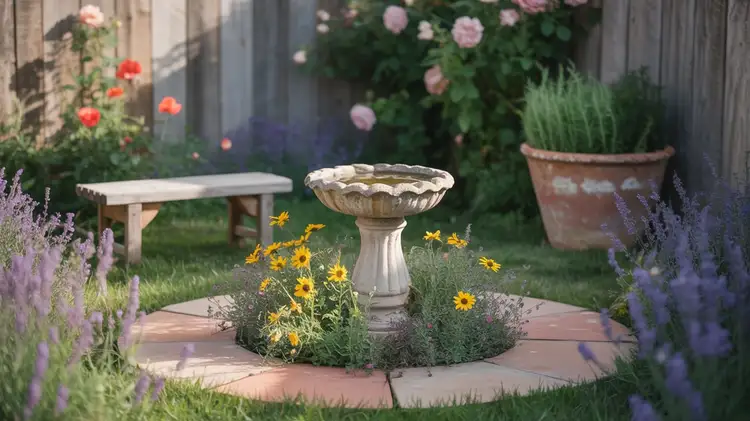
Container Gardening
The mobility of portable containers allows plant rearrangement and consequently grants flexibility to both design arrangements and plant maintenance needs.
Raised Beds
The systematic arrangement of plants occurs through raised beds, which simultaneously enhance both the soil quality and organization. Height variations created by these elements create visual interest in the garden area.
Built-in Benches
The sides of your raised beds can be transformed into suitable seating areas by including built-in benches.
Mirrors and Reflective Surfaces
Placing mirrors carefully throughout the space enables you to reflect sunlight while plants appear and produces a bigger visual area.
Selecting Plants for Small Gardens
In small garden design, it becomes vital to select appropriate plants. The objective requires choosing plants that perform well in restricted areas alongside those which support visual appeal.
Dwarf and Compact Varieties
Dwarf fruit trees alongside Japanese maple serve as attractive ornamental plants when selecting trees for your small garden space.
Climbing Plants
Vertical Growth involves planting clematis along with jasmine or climbing roses because these plants produce height and fragrance without requiring extra ground space.
Support Structures
Support structures made from trellises or arbors must provide sufficient support for vertical growth guidance.
Perennials and Annuals
A continuous garden bloom comes from using perennials with annuals, which create seasonal dynamics between permanent and temporary flowers to achieve the best landscape.
Incorporating Water Features
The presence of water elements in a small garden successfully enhances both its peaceful character and visual charm.
Wall-Mounted Fountains
The wall-mount design of fountains permits them to rest on walls or fences while supplying soothing water sounds without using up space.
Reflective Ponds
Miniature ponds can be constructed using either small containers or simple small-scale excavation activity to create them while utilizing aquatic plants to provide a realistic pond appearance.
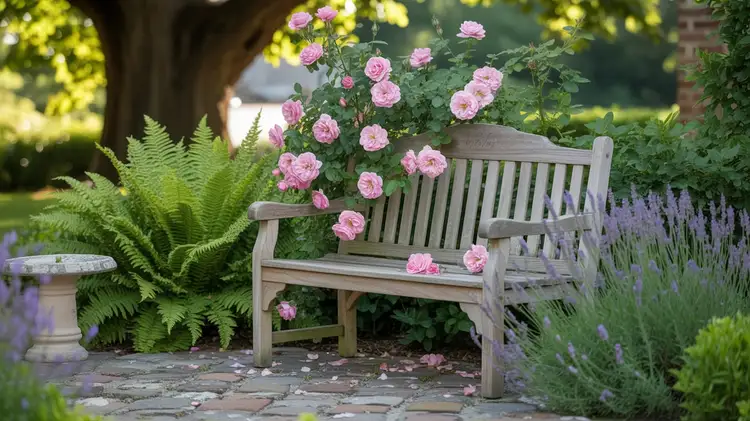
Lighting Solutions for Small Gardens
The installation of adequate lighting enables you to use your garden after dark and showcases its design elements.
Solar Lights
The garden achieves energy efficiency by utilizing wireless solar-powered lights that can highlight pathways and planters as well as seating areas.
String Lights
Outdoor lights made of weather-proof string illumination transform fences or branches into a beautifully illuminated environment for relaxation.
Design Idea | Description | Space-Saving Tip |
Foldable Garden Furniture | Furniture that folds away to free up space when not in use. | Choose stackable chairs and collapsible tables. |
Miniature Water Feature | Compact fountains or bubbling pots for soothing ambiance. | Solar-powered features reduce wiring needs. |
Container Gardening | Grow plants in pots or containers for flexibility. | Move containers based on sunlight and season. |
Corner Trellis Planters | Utilizes corner areas for climbing plants and added greenery. | Combine with wall planters for vertical impact. |
Designing Functional Zones
Creating different areas within a small garden through proper division will improve the space’s structure and appearance.
Dining Area
The outdoor dining area requires compact furniture which includes foldable chairs and tables for its flexibility needs.
Relaxation Nook
Users can find relaxation by placing a cushioned hammock or a comfortable chair within a secluded reading spot.
Privacy Elements
The installation of tall plants combined with lattice screens or curtains will establish zones of privacy throughout the area.
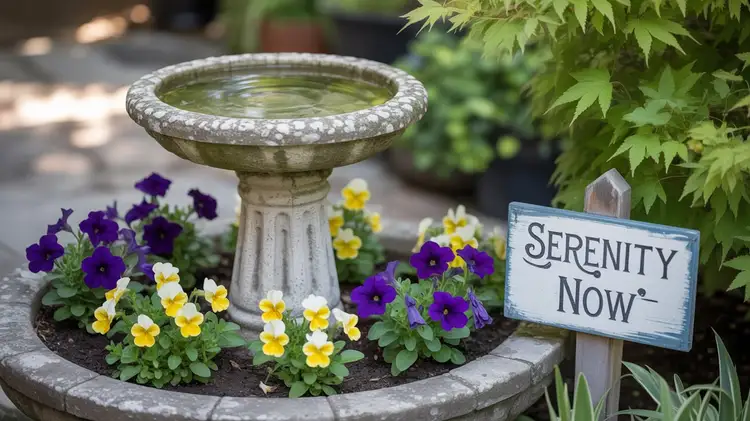
Utilizing Color and Texture
Planned applications of color and texture successfully boost the aesthetic character of small garden spaces.
Color Schemes
You can achieve a harmonious and peaceful atmosphere through the use of different variations of one exclusive color known as a monochromatic palette.
Sprightly Accents
Sprightly accents arise from vivid hues which appear in flowers and cushions along with pots to generate attention-grabbing centers and vitality.
Textural Contrast
The mixture of plants having various leaf dimensions along with diverse surface varieties between glossy, fuzzy and serrated will produce depth.
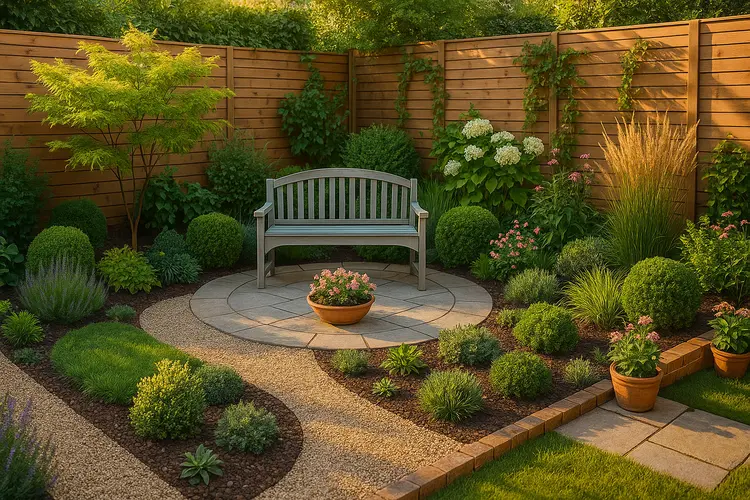
Sustainable Practices in Small Gardens
The use of sustainable procedures leads to better environmental condition and strengthens gardening resistance.
Rainwater Harvesting
Gutters connected to collection barrels enable reservoirs of rainwater for safe irrigation in the future.
Composting
The establishment of miniature compost bins dedicated to kitchen waste along with garden trimmings results in valuable organic soil compost.
Maintenance Tips for Small Gardens
You can maintain a lively and healthy appearance in your small garden through regular maintenance efforts.
Pruning and Deadheading
The care of plants requires cutting away dead or oversized branches because it benefits both their growth and disease prevention.
Soil Care and Health Maintenance
The addition of mulch acts as a way to protect soil moisture while concurrently fighting weeds and supporting temperature needs.
Seasonal Care for Small Gardens
The practice of regular seasonal gardening operations produces healthy plants which produce a continuous display of beautiful landscapes during all seasons.
Spring Garden Preparation
Clear away winter-deposition of dead plants together with debris from your garden.
Add Seasonal Colors
Add both flowers and vegetables of the season to create vibrant spring garden colors.
Summer Maintenance
Look for evidence of pests and apply natural plant defenses as protection from insects.

Maximizing Space in Small Gardens
Smart Use of Corners
The dead space formed by corners presents useful possibilities for putting in additional seating arrangements together with plant areas and decorative elements.
Tiered and Layered Gardening
A stacking arrangement of planters and raised beds and vertical shelves both enhance garden visual appeal while creating additional planting opportunities.
Hidden Storage Solutions
The combination of storage functionality in garden furniture enables users to hide tools along with gardening items beneath seating surfaces and maintain visual cleanliness.
Final Thoughts on Small Garden Landscaping
Creating a small garden demands both imagination and prudent use of available space and suitable choice of plants. Small urban gardens can achieve lush inviting retreats through the combination of vertical gardening, compact furniture and layered planting designs.

- Be Respectful
- Stay Relevant
- Stay Positive
- True Feedback
- Encourage Discussion
- Avoid Spamming
- No Fake News
- Don't Copy-Paste
- No Personal Attacks

- Be Respectful
- Stay Relevant
- Stay Positive
- True Feedback
- Encourage Discussion
- Avoid Spamming
- No Fake News
- Don't Copy-Paste
- No Personal Attacks
